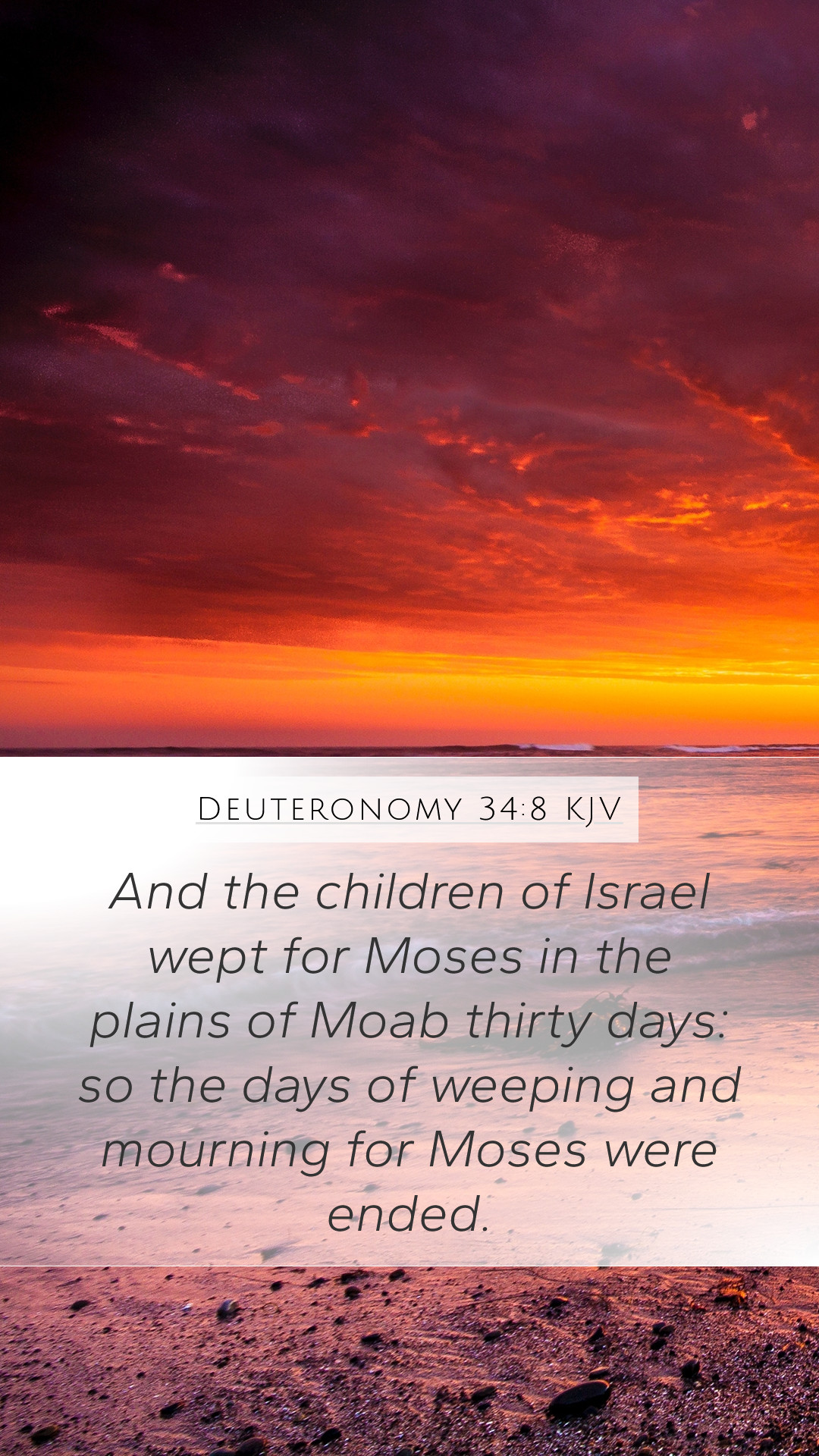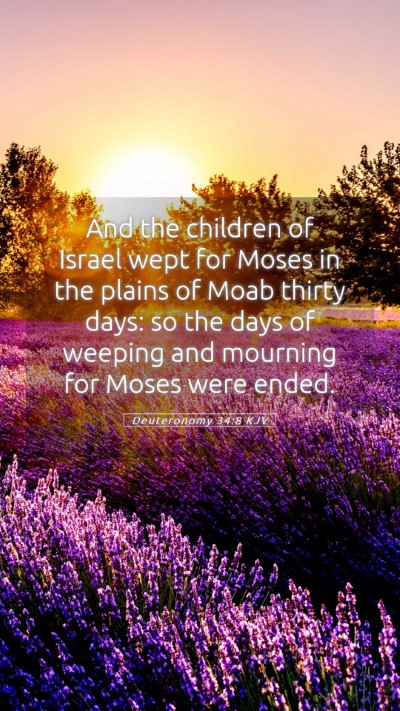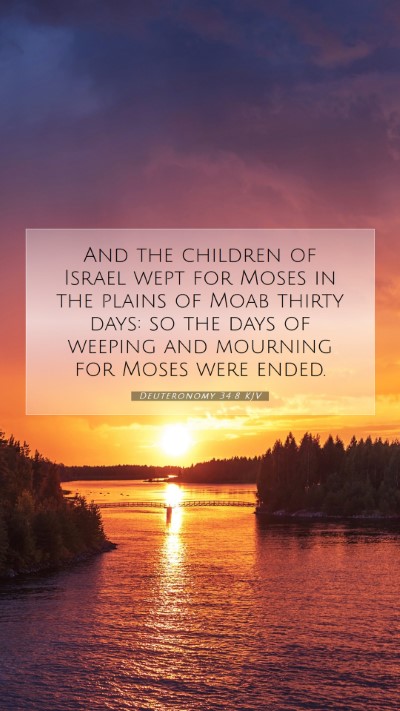Understanding Deuteronomy 34:8
Bible Verse: Deuteronomy 34:8 - "And the children of Israel wept for Moses in the plains of Moab thirty days: so the days of weeping and mourning for Moses were ended."
Overview of the Verse
This verse marks the end of Moses' life and highlights the profound impact he had on the Israelites. The mourning period of thirty days signifies the deep sorrow and loss felt by the people following Moses' death.
Key Insights from Public Domain Commentaries
-
Matthew Henry Commentary
Henry observes that the mourning for Moses is a testament to the significant role he played as a leader and prophet. The extended period of mourning illustrates both Israel's respect for Moses and the gravity of their loss. John’s reflections on the mourning period encourage believers to appreciate those who lead them spiritually.
-
Albert Barnes' Commentary
Barnes emphasizes the collective grief of the Israelites and suggests that their weeping represents a communal response to the loss of a great leader. He points out that mourning was not only a personal grief but also a national tragedy, acknowledging Moses' irreplaceable position as mediator between God and Israel.
-
Adam Clarke’s Commentary
Clarke interprets the mourning period as a necessary aspect of mourning in the Jewish culture. He highlights the connection between the people and Moses, underscoring how deeply they relied on him for guidance. Clarke also notes the significance of this moment in preparing the people for entering the Promised Land without their leader.
Lessons and Applications
The passing of Moses teaches several important spiritual lessons:
- Leadership and Legacy: Moses' life is a reminder of the weight carried by leaders and the legacy they leave behind. It invites reflection on how we honor those who guide us spiritually.
- Community Mourning: The collective grief experienced by the Israelites highlights the importance of unity in both joy and sorrow within a community. Difficulty can draw people together, reinforcing the value of shared experiences.
- Preparation for Change: The end of Moses' leadership marks a significant transition for Israel. This transition encourages individuals to reflect on their own readiness to face change and the importance of faith during uncertain times.
Cross References
- Numbers 20:29:This verse illustrates the mortality of Moses as he passes the leadership to Joshua.
- Deuteronomy 31:7-8:The encouragement Moses gives to Joshua as a leader and preparation for Israel’s future.
- Joshua 1:1-2:The transition of leadership from Moses to Joshua and the divine reassurance given to Joshua.
- Exodus 33:11:Highlights the unique relationship Moses had with God.
Conclusion
In sum, Deuteronomy 34:8 serves as a poignant reminder of the impact one leader can have on an entire nation. The collective mourning reflects the deep bond between Moses and the Israelites, emphasizing the importance of recognizing and understanding the dynamics of leadership, community, and transition. Through scripture analysis and historical context, we gain a deeper appreciation for the powerful messages contained within the Bible, leading to a better understanding of Scripture as a whole.
Further Study Resources
- Participate in bible study groups to explore biblical leadership.
- Utilize bible study tools to deepen comprehension of mourning practices in biblical times.
- Explore bible study materials focused on the lives of key biblical figures like Moses.


